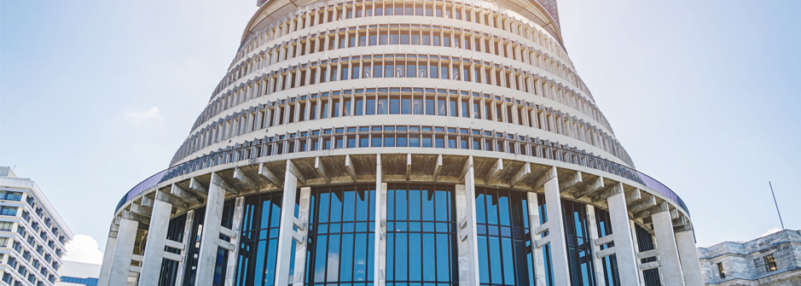The COVID-19 Public Health Response Bill (“Bill”) has been passed under urgency. This establishes the legal framework required to allow the Government to respond to COVID-19 over the next two years, even if there is no longer a national state of emergency.
The purpose of the Bill is to support a public health response to COVID-19 which:
- Prevents, and limits the risk of, the outbreak or spread of COVID-19;
- Avoids, mitigates, or remedies the actual or potential adverse effects of the COVID-19 outbreak;
- Is co-ordinated, orderly, and proportionate;
- Has enforceable measures, in addition to the relevant voluntary measures and public health and other guidance that also support that response.
The key features of the Bill are that it:
- Applies to all Alert levels;
- Provides the power for the Minister of Health or Director General to set enforceable measures in order to give effect to the public health response. These measures can be exercised in respect of classes of people, businesses, and other activities (such as sporting events, weddings, funerals, etc), and may apply nationally or to a specified area. These orders are called section 11 orders and include:
- Requiring persons to stay in any specified place, or to refrain from going to any specified place;
- Requiring persons to refrain from associating with specified persons;
- Requiring persons to stay physically distant from any persons (including to self-isolate or quarantine);
- Requiring persons to refrain from traveling to and from a specified area;
- Requiring persons to avoid carrying out specified activities (such as business activities involving close personal contact), or requiring specified activities to be carried out in a specified way or in compliance with specified measures;
- Requiring persons to report for medical examination and or testing;
- Requiring places, premises, crafts etc to be closed, or only open if specified measures are complied with;
- Prohibiting gatherings of a specified kind.
- Gives Police the power to enter premises, including private houses and marae, without a warrant if they have reasonable grounds to believe that people have gathered there in breach of a section 11 order;
- Gives Police the power to close roads, and public places, as well as to stop vehicles;
- Gives an enforcement officer the power to give a direction to stop any activity contravening, or likely to contravene a section 11 order;
- Gives an enforcement officer the power to issue infringement notices and reminder notices;
- Gives an enforcement officer the power to direct an individual to provide identifying information;
- Gives an enforcement officer the power to direct that a business or undertaking is to close if they have reasonable grounds to believe that it is operating in contravention of a section 11 order or any conditions imposed by a section 11 order. A direction to close may not exceed 24 hours, and the owner or manager of the business or undertaking may immediately appeal to a District Court Judge for the revocation of the direction.
- Non-compliance with a section 11 order may result in imprisonment for a term not exceeding 6 months, or a fine on conviction, not exceeding $4,000.
- A section 11 order may specify infringement offences. If a person commits an infringement offence as specified under a section 11 order they are liable to an infringement fee of $300, or a fine imposed by a court not exceeding $1,000.
Note that an enforcement officer is broader than a police officer. An enforcement officer could be the Director General, a medical officer appointed under the Health Act 1956, a police officer, or a person or class of persons authorised to perform a function or power under section 18. This means, for example, that it is possible that Labour Inspectors may be authorised to carry out any functions and powers of an enforcement officer.
